Time to implement national guideline

Gender-biased sex selection (GBSS) refers to the selection of sex of an offspring (often) driven by socio-cultural gender biases, e.g., the value given to sons over daughters. It is a manifestation of son preference and/or daughter aversion. Sex selection can take place at preconception (e.g., sex-selective insemination), pre-implementation (sex-selective embryo transfer), prenatal (sex determination followed by sex-selective abortion) or postnatal stage (infanticide, fatal neglect). The natural sex ratio is 105 males per 100 females, but the skewed sex ratio exceeds 105 and over.
As argued by demography expert Christophe Z Guilmoto, there are three preconditions of GBSS: fertility decline, son preference, and availability of sex detection technology. Son preference can be understood as "an institution based on a set of values and norms … in a complex interaction between social, economic, political and cultural factors," realising itself through "behaviour that favours boys and disfavours girls." On the other hand, daughter aversion is understood as an "attitudinal aversion (against women and girls) which suppresses women's development and leads to the lower status of women in society." Daughter aversion manifests in the corresponding behaviour of less resource allocation to daughters than to sons. The term is used to emphasise that attitudes, values, and norms of "unwanting" daughters have adverse effects for the girl child. Gradually, when society started to treat girls and women differently, patriarchal and authoritative sociocultural structures reinforcing son preference ultimately created skewed sex ratio at birth (SRB).
GBSS at birth started to take place in the 1980s in some Asian countries such as China, India and the Republic of Korea, in the 1990s in some Caucasus countries such as Azerbaijan, Armenia and Georgia, and more recently, in Montenegro, Albania and Vietnam. Due to GBSS, multifaceted impacts, including demographic and social, have been evidenced. Demographically, 142 million women and girls were missing due to gender-biased sex selection by 2020, 1.5 million girls are missing at birth every year due to prenatal sex selection, and 1.7 million excess deaths among born girl children are recorded every year due to discrimination and fatal neglect (UNFPA). Regarding social impact, a decision with severe socioeconomic consequences—individual, opportunistic behaviour—leads to collective catastrophe. Growing marginalisation and changing sexual practices of men forced to remain single creates a "marriage squeeze," leading to increase in violence, trafficking, sex work, out-migration for marriage, etc.
In Bangladesh, the three drivers of GBSS are present. Study findings from Dhaka University's population sciences department in 2019 showed that 28 percent of women had a son preference for their first child, compared to 24 percent of men. On the other hand, 12 percent of women had a daughter preference for their first child, while 10.4 percent of men preferred to have a daughter for their first child. The study also found that disclosure of the sex of the foetus is quite common in Bangladesh. About 90 percent of women respondents in this study stated availability of USG in the vicinity, 40 percent reported undergoing USG during pregnancy, and 34 percent used it for sex determination. Eighty-four percent of women have ever heard about MR, while 9.1 percent ever used MR services.
Another driver of GBSS is low fertility: the total fertility rate (TFR) in Bangladesh stands at 2.3, which used to be much higher—6.4 in 1974 and 3.4 in 1993-94. As patriarchy is predominantly in practice, a rise in GBSS cannot be ruled out as fertility rates are also on the decline.
GBSS may not be widely practised in Bangladesh, but evidence from study suggests its existence. In the quantitative sample of the survey conducted by icddr,b encompassing 1982-2018, six percent of mothers had a history of induced abortion. Analysis shows that a mother's history of induced abortion increased the likelihood of the birth of a male child 1.08 times after the introduction of ultrasonography in Matlab, Chandpur. There is substantial geographic variation in sex ratio at birth within Bangladesh, and it is as high as 110 or more in some divisions (UNFPA Bangladesh, 2020). A projection by Chao et al. (2021) suggests that Bangladesh has a probability of rising SRB by 77.5 percent, which could result in a cumulative number of up to 1,251,000 missing female births between 2021-2100 (Chao et al., 2021).
It's good to state that, with external support, the government has developed the National Guideline for Prevention of Son Preference and the Risk of Gender-Biased Sex Selection, 2022, where I was a technical committee member. There are six obligations under the guideline. First, no person, organisation, genetic counselling centre, genetic laboratory or genetic clinic or centre, including those having ultrasound machine or imaging machine or scanner, or any other technology capable of determining the sex of foetus, shall issue, display, publish, distribute, communicate in any manner the availability of facilities to enable prenatal diagnosis or prenatal sex determination.
Second, in the field of infertility treatment, no person or organisation, including infertility clinic, laboratory or centre, including those having technology capable of conducting sex selection on a woman or a man or on both or any cells derived from either or both of them, shall issue, display, publish, distribute, communicate in any manner about facilities of prenatal sex determination or sex selection available.
Third, the concerned ministries of the government shall undertake initiatives to sensitise the relevant stakeholders, including but not limited to, gynaecologists, medical geneticists, paediatricians, registered medical practitioners, community-level health and family planning workers including midwives, community skilled birth attendants (CSVAs), family welfare assistance (FWAs), sub-assistant community medical officers (SACMOs), family welfare visitor (FWVs), radiologists, sonologists, imaging specialists, nurses and technicians about the risk of gender-biased sex selection.
Fourth, the aforementioned stakeholders should be sensitised, among others, on the Code of Professional Conduct, Etiquette and Ethics, provided by Bangladesh Medical and Dental Council, which specifically states that "sex determination for the social, cultural or non-medical reasons should not be performed."
Fifth, any person, organisation, genetic counselling centre, laboratory or clinic, including those having ultrasound machine or imagining machine or scanner or any other technology capable of determining sex of the foetus, must collect and preserve data of the screenings conducted at the respective facilities.
Sixth, any person, organisation, genetic counselling centre, laboratory or clinic, including those having ultrasound machine or imagining machine or scanner or any other technology capable of determining sex of the foetus, must display messages (in digital or printed forms, e.g., posters) on gender equality and valuing girl children.
It is high time that this guideline was implemented at all levels in Bangladesh. In addition, policies need to be formulated addressing the underlying root causes of son preference and undervaluing of daughters, and there needs to be monitoring to avoid unintended effects.
Dr Mohammad Mainul Islam is a professor and former chairman of the Department of Population Sciences at Dhaka University.
Views expressed in this comment are the author's own.
Follow The Daily Star Opinion on Facebook for the latest opinions, commentaries and analyses by experts and professionals. To contribute your article or letter to The Daily Star Opinion, see our guidelines for submission.

 For all latest news, follow The Daily Star's Google News channel.
For all latest news, follow The Daily Star's Google News channel. 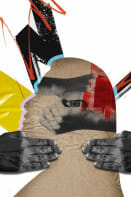
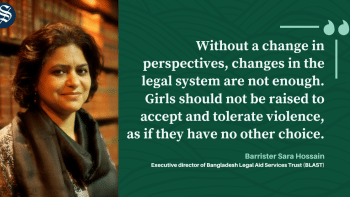
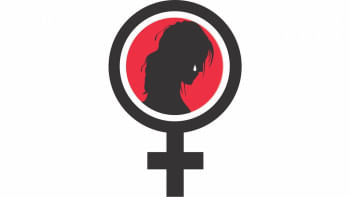


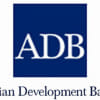
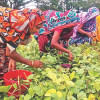
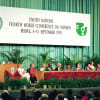


Comments